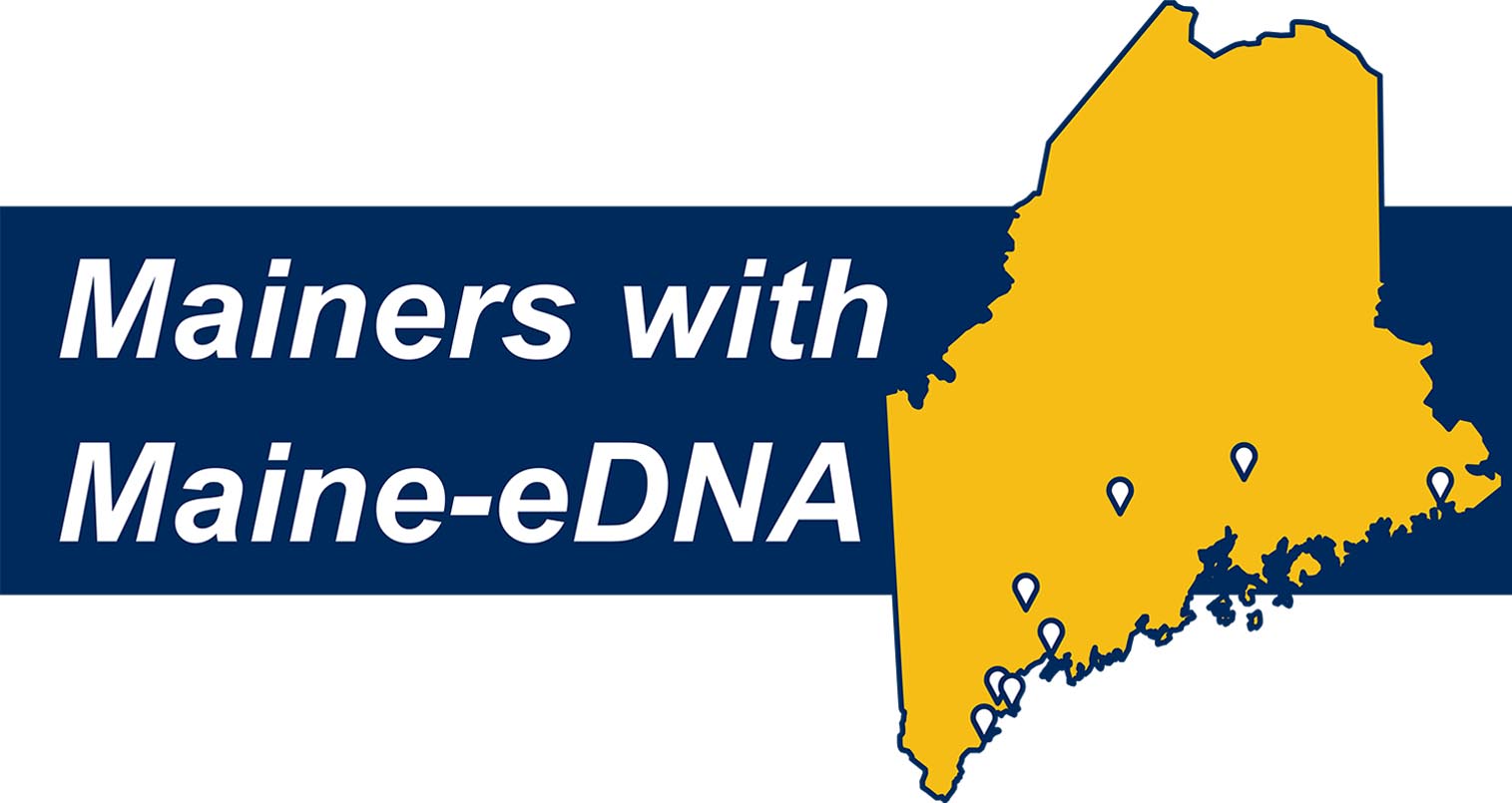
Mainers with Maine-eDNA
by Daniel Timmermann
The 5-Year NSF EPSCoR Funded Track-1 Maine-eDNA Grant seeks to transform our understanding and sustainability of Maine’s coastal ecosystems via environmental DNA (eDNA). Maine-eDNA currently supports 31 undergraduate students from across the state and since 2019 has supported 87 students from Bates, Bowdoin, Colby, Saint Joseph’s, SMCC, UMaine, UMM, and USM. Below three students from Maine are highlighted who work with Maine-eDNA.
Elaina Cote
Hailing from Southwest Harbor on Mount Desert Island, Elaina Cote came to the University of MjMaine to study Biology. Though only in the midst of her first year, Cote works with Erin Grey (Assistant Professor of Aquatic Genetics at UMaine) on the NSF EPSCoR funded Maine-eDNA grant extracting DNA samples and assisting with a species database.
Simultaneously during the Fall 2021 Semester, Cote took Explorations in Maine-eDNA, Maine-eDNA’s pilot class for University of Maine’s Research Learning Experiences (RLE) program. The RLE class first introduced Cote to the concept of environmental DNA (eDNA). The class tasked students to design a study to see if American eel (Anguilla rostrata) in the Stillwater River could be surveyed using eDNA sampling.
In true Maine fashion, Cote grew up a lobsterman. Cote explained, “I’ve seen how the fishing industry has changed just because our resources aren’t really well managed.” Through her experiences with Maine-eDNA, Cote sees the potential eDNA has when it comes to monitoring and managing Maine’s natural resources.” Continuing, Cote said, “Livelihoods really depend on managing this industry well.”
Jon Donnelly
Jon Donnelly was raised just down the road from the University of Maine in Brewer. As a senior studying computer science with minors in math and Spanish, Donnelly was introduced to the Maine-eDNA grant by Chaofan Chen (Assistant Professor of Computer Science at UMaine).
Donnelly works with Chen’s team building a machine learning model that maps eDNA to species and phylums in order to detect invasive species. “We are working on getting familiar with the data and trying out different models because a big thing with AI and machine learning is fitting the right model to the right data.” explained Donnelly. While fascinated with the larger goals of Maine-eDNA, Donnelly sees this as an opportunity to learn new subjects in ways that are not as readily available in his normal course work.
“I’ve enjoyed picking up AI but Maine-eDNA offers a very different perspective on it being a concrete application.” Donnelly continued, “I’ve started to think of questions and problems more and more as concepts that you can represent mathematically. Once you have any concept represented mathematically you can do whatever you want.”
Looking beyond his final year of undergraduate studies, Donnelly hopes to go into research and is awaiting to hear back from several different graduate schools. Regardless of where he goes, the plan is to continue to work with AI.
Gabrielle Brodek
From Hampden, Maine, Gabrielle Brodek is currently student teaching seventh and eighth grade in Machias in order to complete her Master’s degree in the Master of Science in Teaching Program (MST) at the University of Maine.
As part of Maine-eDNA, Brodek worked with the UMaine Cooperative Extension 4-H office. Brodek developed an eDNA toolkit that can be used by educators, summer camps, and afterschool programs across the state of Maine. The toolkit introduces students to concepts in eDNA through hands-on learning activities.
Through the MST Program, working with Maine-eDNA and 4-H, Brodek learned how to better communicate innovative and complicated concepts in science. Brodek explained using eDNA as an example, ‘It is unrealistic for youth in grades 3-5 to understand PCRs and population projections, but they can relate to phenomena that animals leave behind evidence… This ‘relevant science’ goes both ways – discovering ways in which youth relate to the idea of eDNA and how it works, but also how the applications of eDNA impact their lives.”
Brodek is currently considering STEM educator positions in Maine and exploring opportunities with nonprofits. Above all, Brodek explained, “I am seeking opportunities that allow me to teach science, be a scientist, and continue learning about science.“
